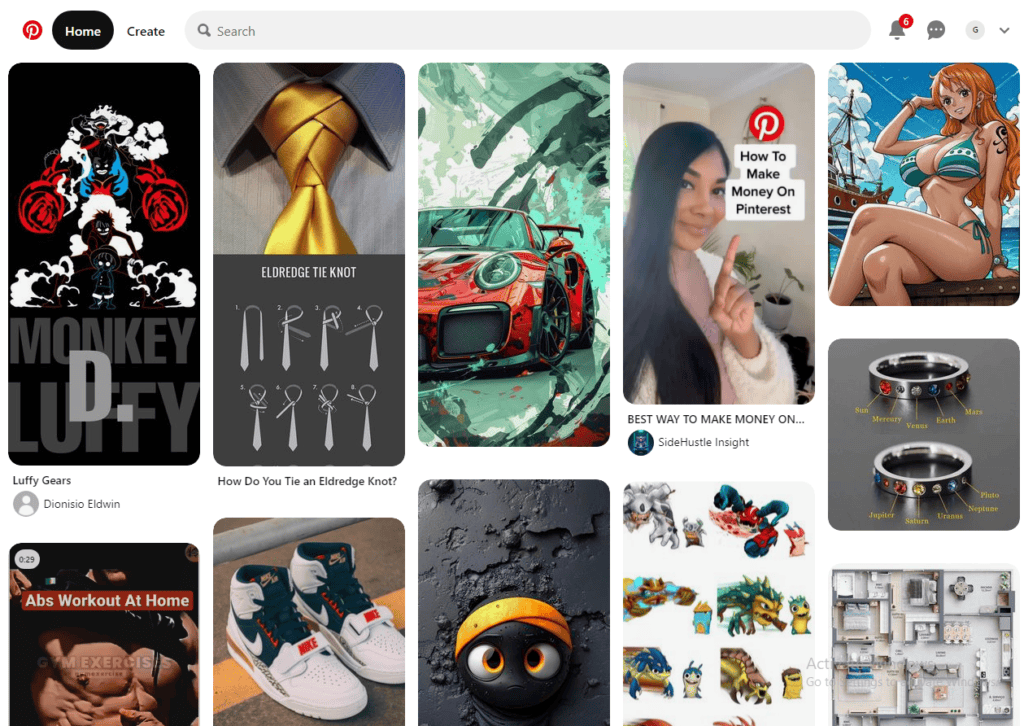In a world where choices abound, consumers often find themselves overwhelmed by options. This is where the concept of social proof comes into play. Social proof is a psychological phenomenon where individuals look to the actions and opinions of others to guide their own behavior. It operates on the premise that if many people are doing something, it must be the right thing to do. This behavior can be seen in various aspects of life, from personal decisions to purchasing habits.
Social proof plays a critical role in influencing consumer behavior. When potential buyers encounter positive feedback, testimonials, or endorsements from their peers, they are more likely to trust the brand or product in question. In fact, studies have shown that consumers are more inclined to make a purchase when they see evidence of others’ satisfaction. This influence stems from our inherent desire for validation and acceptance; we often seek reassurance that our choices align with those of our peers.
The purpose of this article is to delve deeper into the concept of social proof, exploring its various types and significance in the marketing landscape. We will examine how businesses can leverage social proof effectively to build trust and credibility, enhance customer engagement, and ultimately drive sales. By understanding and implementing social proof strategies, brands can create a more compelling narrative that resonates with their audience, encouraging consumers to choose their products or services over competitors.
The path to financial freedom begins here. Click now to start your business!
Try Wealthy Affiliate (For Free).
What is Social Proof?
Definition of Social Proof in Psychology and Marketing
Social proof is a psychological concept that refers to the tendency of individuals to look to others for cues on how to behave in a given situation. In essence, it is the idea that people are influenced by the actions and opinions of others, especially in situations where they feel uncertain or lack information. This phenomenon is rooted in social and cognitive psychology and has profound implications for marketing and consumer behavior.
In marketing, social proof serves as a powerful tool that helps brands build credibility and trust. When potential customers observe that others have purchased a product or service and had positive experiences, they are more likely to feel confident in their own decision to make a similar purchase. As a result, social proof can significantly impact conversion rates and overall business success.
The Principle of Social Proof as a Heuristic
The principle of social proof functions as a heuristic, or mental shortcut, that simplifies decision-making processes. When faced with uncertainty or doubt, consumers often rely on social cues to guide their choices. This reliance on social proof is particularly strong in environments where consumers may lack knowledge or expertise about a product or service. By observing the behavior of others—such as the number of likes on a social media post, positive reviews, or the popularity of a product—consumers can make quicker, more informed decisions without needing to conduct extensive research.
This heuristic is especially relevant in the digital age, where information overload can make it challenging for consumers to discern the best choices. Social proof provides a framework for individuals to evaluate their options based on the experiences of others, ultimately leading to greater confidence in their decisions.
Examples of Social Proof in Everyday Life
Social proof is prevalent in many aspects of daily life, manifesting in various forms that influence behavior and choices. Here are a few relatable examples:
- Customer Reviews and Ratings: When shopping online, many consumers turn to product reviews and ratings to gauge the quality and reliability of items. A product with a high rating and numerous positive reviews acts as social proof, reassuring potential buyers of its value.
- Social Media Engagement: The number of likes, shares, or comments on a post can significantly influence a user’s perception of its importance or relevance. For instance, a video with millions of views is often perceived as entertaining or valuable, prompting more people to watch it.
- Influencer Endorsements: In the age of social media, influencers play a pivotal role in shaping consumer perceptions. When an influencer endorses a product, their followers often view this as a form of social proof, leading to increased trust and the likelihood of purchase.
- Crowd Behavior: In real-life situations, people often look to the behavior of others to inform their actions. For example, if a restaurant is bustling with diners, passersby may assume it serves delicious food and choose to eat there, believing that the crowd’s presence is a testament to the establishment’s quality.
- Testimonials and Case Studies: Businesses frequently showcase testimonials from satisfied customers to highlight their products’ effectiveness. These personal accounts serve as powerful social proof, influencing potential customers by demonstrating that others have achieved positive results.
Types of Social Proof
Understanding the different types of social proof can help businesses tailor their marketing strategies to leverage these forms effectively. Each type serves a unique purpose and can resonate with consumers in various ways.
Expert Social Proof
Definition:
Expert social proof refers to endorsements, recommendations, or validations from recognized authorities or industry experts. These endorsements carry weight because they are based on knowledge, expertise, and credibility. When a respected figure vouches for a product or service, it adds an additional layer of trust for potential customers.
Examples:
- Testimonials from Industry Leaders: For instance, if a well-known business consultant praises a project management tool, potential users may feel more inclined to try it, believing that it meets industry standards.
- Endorsements by Influencers: Influencers with a strong reputation in a specific niche can sway their followers’ opinions. For example, a renowned fitness coach endorsing a dietary supplement may lead their audience to perceive it as effective and trustworthy.
Expert social proof is particularly impactful in markets where consumers seek assurance that they are making informed choices based on credible opinions.
User Social Proof
Definition:
User social proof is the evidence provided by actual customers who have experienced a product or service. This form of social proof relies on the authenticity of peer experiences, which can significantly influence the buying decisions of potential customers.
Examples:
- Customer Reviews: Platforms like Amazon and Yelp allow users to leave reviews and ratings based on their experiences. Positive reviews can instill confidence in potential buyers, while negative feedback can deter them from making a purchase.
- User-Generated Content (UGC): UGC includes photos, videos, or posts created by customers showcasing their experiences with a product. Brands can encourage customers to share their experiences on social media, creating authentic marketing content that resonates with prospective buyers.
User social proof works effectively because it reflects the collective voice of the consumer community, creating a sense of reliability and relatability.
Wisdom of the Crowds
Definition:
Wisdom of the crowds is the idea that the collective judgment of a large group of people can serve as a reliable indicator of quality or effectiveness. When many people endorse a product or service, it signals to others that it is worth their attention.
Examples:
- High Ratings on Platforms: Products that consistently receive high ratings across multiple platforms—such as 4.5 stars on Google and 4.8 stars on Amazon—indicate that they are widely accepted and appreciated.
- Best-Seller Lists: Products featured on best-seller lists, whether in retail or online marketplaces, demonstrate popularity and consumer demand. This visibility can enhance a product’s appeal and encourage others to consider purchasing it.
Wisdom of the crowds provides reassurance to consumers that their choices are aligned with those of many others, making it a powerful motivator for decision-making.
Celebrity Social Proof
Definition:
Celebrity social proof involves endorsements from well-known personalities, such as actors, musicians, or sports figures. The allure of celebrity can significantly influence consumer behavior, as fans and followers often look to their favorite stars for inspiration and validation.
Examples:
- Celebrity Endorsements: Brands frequently collaborate with celebrities to promote their products, such as a popular actress endorsing a skincare line. These endorsements can lead to increased visibility and sales due to the celebrity’s influence and fan base.
- Social Media Influencers: Many modern influencers have amassed large followings on platforms like Instagram and TikTok. When these influencers promote a product, their followers may view it as a recommendation, driving engagement and sales.
Celebrity social proof leverages the admiration and trust that fans have for their idols, making it a potent tool in marketing.
Certification Social Proof
Definition:
Certification social proof refers to third-party validation that establishes the credibility and quality of a product or service. This type of social proof involves awards, certifications, or recognitions from reputable organizations, which can instill confidence in potential customers.
Examples:
- Certifications: Products that hold certifications from recognized organizations—such as organic, fair trade, or safety certifications—provide assurance to consumers regarding their quality and ethical standards.
- Awards and Recognitions: Winning awards or being recognized in industry publications can bolster a brand’s reputation. For instance, a restaurant receiving a Michelin star signifies exceptional quality and service, influencing potential customers to dine there.
Disclaimer: This post contains affiliate links. I may earn a commission if you purchase through these links. However, these links provide access to valuable resources for your online business.
Try Wealthy Affiliate (For Free).
The Importance of Social Proof in Marketing
Social proof is not just a buzzword; it plays a vital role in shaping consumer behavior and marketing strategies. Understanding its importance can help businesses harness its power to drive engagement and sales effectively. Below are key reasons why social proof is essential in marketing.
Builds Trust and Credibility
In today’s digital landscape, consumers are often skeptical of brands and their claims. With the abundance of information available online, it can be challenging for consumers to discern which products and services are genuinely worth their investment. Social proof addresses this issue by providing evidence from peers, experts, and satisfied customers.
- Consumer Trust: When potential buyers see positive reviews, testimonials, or endorsements from trusted figures, it instills confidence in their purchasing decisions. Brands that actively showcase user experiences and expert opinions position themselves as trustworthy entities, making consumers feel more secure in their choices.
- Reduced Information Overload: Social proof simplifies the decision-making process for consumers by highlighting products that others have validated. Instead of wading through an overwhelming amount of information, customers can look to the experiences of others to guide their choices.
Influences Purchase Decisions
Social proof has a profound influence on the psychology of purchasing. When consumers are faced with multiple options, the behavior of others can significantly sway their decisions.
- Peer Validation: People often look to their peers for validation, particularly in ambiguous situations. If many others are purchasing a particular item or recommending a service, new customers are more likely to follow suit, perceiving that collective behavior as an endorsement of quality.
- Psychological Triggers: Social proof taps into the psychological triggers of conformity and belonging. Consumers are naturally inclined to align their choices with those of others, especially when they lack information. Marketers can leverage this tendency by showcasing user-generated content, testimonials, and ratings prominently.
Enhances Brand Loyalty
Building long-term relationships with customers is crucial for sustained business success. Social proof can play a significant role in fostering brand loyalty.
- Sense of Community: When customers see others enjoying a brand or product, it fosters a sense of community and belonging. This connection can create an emotional bond between consumers and the brand, encouraging repeat purchases and brand advocacy.
- Increased Engagement: Brands that actively encourage and showcase customer experiences are more likely to engage their audience. By highlighting user-generated content, brands can strengthen their relationships with existing customers while attracting new ones.
- Word-of-Mouth Marketing: Satisfied customers who share their positive experiences contribute to organic word-of-mouth marketing. This form of social proof not only reinforces loyalty but also amplifies brand visibility and credibility through authentic recommendations.
Reduces Buyer Hesitation
One of the most significant barriers to purchase is hesitation, which can stem from fear of making the wrong choice or concerns about quality. Social proof acts as a powerful antidote to this hesitation.
- Reassurance: By displaying testimonials, reviews, or expert endorsements, brands can reassure potential buyers about the quality and value of their products. This reassurance can alleviate concerns and encourage customers to move forward with their purchase.
- Increased Conversions: Reducing buyer hesitation can lead to higher conversion rates. When customers feel confident in their decision due to the presence of social proof, they are more likely to complete their purchases.
- Strategic Implementation: Marketers can strategically incorporate social proof elements—such as displaying customer reviews on product pages, showcasing testimonials in advertisements, or highlighting awards and certifications—to effectively diminish hesitation and drive sales.
How to Leverage Social Proof for Your Business
Harnessing social proof effectively can elevate your marketing strategies and enhance customer trust and engagement. Here are several actionable ways to leverage social proof for your business.
Gather Customer Testimonials
Encourage Reviews from Satisfied Customers:
Customer testimonials are one of the most powerful forms of social proof. They provide authentic feedback from real users who have experienced your products or services. To gather these testimonials:
- Follow-Up Emails: After a purchase, send personalized follow-up emails thanking customers and inviting them to share their feedback. Consider using automated systems that trigger requests at optimal times post-purchase.
- Incentivize Feedback: Offering small incentives, such as discounts on future purchases or entry into a giveaway, can motivate customers to leave reviews. However, ensure that this does not compromise the authenticity of their feedback.
Showcase Positive Feedback Prominently:
Once you’ve gathered testimonials, it’s essential to showcase them effectively.
- Dedicated Testimonials Page: Create a section on your website specifically for customer testimonials. This page can feature various customer stories, star ratings, and detailed reviews.
- Highlight in Marketing Materials: Use snippets of positive feedback in your email campaigns, social media posts, and advertising materials to catch the attention of potential customers. The more visible the testimonials, the more impact they will have.
Utilize User-Generated Content
Create Campaigns that Encourage Users to Share Their Experiences:
User-generated content (UGC) is content created by customers, such as reviews, photos, and videos that showcase their experiences with your brand. To encourage UGC:
- Social Media Hashtags: Develop a unique hashtag for your brand or specific campaigns. Encourage customers to use it when sharing their experiences on social media.
- Contests and Challenges: Organize contests that prompt users to create content featuring your products. This could involve photo contests or challenges that encourage creativity and engagement.
Highlight User Photos or Videos on Your Website and Social Media:
Displaying UGC on your platforms can significantly enhance authenticity and relatability.
- Gallery Sections: Create a dedicated section on your website to display user photos and videos. This not only adds a personal touch but also allows prospective customers to see real-life applications of your products.
- Repost on Social Media: Regularly feature UGC on your brand’s social media channels. This shows appreciation for your customers and builds a community around your brand.
Collaborate with Influencers
Identify Influencers in Your Niche:
Influencer marketing can significantly amplify your reach and credibility. Start by identifying influencers who align with your brand values and target audience.
- Micro vs. Macro Influencers: Consider collaborating with both micro-influencers (those with smaller, but highly engaged followings) and macro-influencers (those with larger audiences). Micro-influencers often have more authentic connections with their followers, while macro-influencers can provide extensive reach.
Foster Partnerships for Authentic Endorsements:
Building genuine partnerships with influencers can lead to authentic endorsements that resonate with their followers.
- Long-Term Collaborations: Rather than one-off promotions, aim for long-term collaborations that allow influencers to genuinely integrate your products into their content. This authenticity can enhance trust among their audience.
- Provide Creative Freedom: Allow influencers the creative freedom to present your products in their own style. Authenticity is crucial in influencer marketing, and followers are more likely to trust genuine recommendations.
It’s time to stop thinking and start doing. Click here to begin your journey!
Try Wealthy Affiliate (For Free).
Showcase Popular Products
Display Best-Sellers and Trending Items:
Highlighting popular products can serve as a powerful form of social proof, suggesting that these items are highly sought after and well-loved by customers.
- Best-Seller Badges: Use visually appealing badges or labels on product pages to indicate which items are best-sellers. This draws attention and can encourage new customers to consider these products.
- Trending Sections: Create a “Trending Now” section on your website to showcase products that are currently popular among customers. This can entice potential buyers to join the trend.
Use Phrases Like “Join Thousands of Satisfied Customers”:
Language plays a critical role in conveying social proof.
- Effective Messaging: Phrases like “Join thousands of satisfied customers” or “Don’t miss out on what everyone is talking about” create a sense of urgency and belonging, motivating potential buyers to take action.
- Highlighting Numbers: Including specific figures, such as “Over 10,000 happy customers” or “Rated 4.8 stars by 5,000 users,” can effectively convey the popularity and trustworthiness of your products.
Highlight Awards and Certifications
Promote Any Relevant Awards or Certifications Prominently on Your Site:
Accolades and certifications can serve as strong endorsements, enhancing your brand’s credibility.
- Homepage Feature: Consider featuring awards and certifications prominently on your homepage, ensuring they are visible to all visitors. This establishes trust from the very first interaction.
- Product Pages: Include certifications on product pages to reassure customers about the quality and safety of your offerings.
Use Badges and Seals of Approval for Credibility:
Visual elements can enhance the perception of trustworthiness.
- Trust Badges: Incorporate trust badges, such as security seals for online transactions or quality assurance logos, to assure customers that their information is safe and your products meet industry standards.
- Award Seals: Use seals or badges to highlight awards won by your products or services, such as “Best Product of the Year.” This visual reinforcement can significantly influence purchasing decisions.
Case Studies of Successful Social Proof Implementation
Understanding how successful companies leverage social proof can provide valuable insights and inspiration for your own marketing strategies. Below are two compelling case studies that illustrate effective implementations of social proof and the impressive results that followed.
Case Study 1: Company X
Overview of the Strategy Used:
Company X, a mid-sized e-commerce retailer specializing in health and wellness products, recognized that potential customers were often hesitant to make purchases without seeing reviews or endorsements. To address this, they implemented a comprehensive social proof strategy that included:
- Customer Reviews and Ratings: They actively encouraged customers to leave reviews post-purchase through follow-up emails, offering small discounts on future purchases as incentives. Additionally, they created a dedicated section on their product pages to display these reviews prominently.
- User-Generated Content Campaign: Company X launched a social media campaign encouraging customers to share photos of themselves using their products, tagged with a unique hashtag. They reposted this content on their social channels, showcasing real users and creating a sense of community.
- Influencer Partnerships: The brand collaborated with micro-influencers in the health and wellness niche to provide authentic endorsements of their products. These influencers shared their experiences on social media and included discount codes for their followers.
Results Achieved:
The implementation of these strategies yielded impressive results for Company X:
- Increased Sales: Within six months of launching their social proof initiatives, Company X reported a 35% increase in online sales. The visibility of customer reviews and user-generated content played a significant role in converting hesitant visitors into paying customers.
- Higher Engagement Rates: The user-generated content campaign led to a 50% increase in engagement on their social media platforms. Customers enjoyed seeing themselves featured, fostering loyalty and encouraging them to share more content.
- Enhanced Brand Credibility: Customer reviews and endorsements from influencers significantly enhanced the brand’s credibility. Surveys indicated that 80% of new customers cited reviews as a major factor in their purchasing decisions, reinforcing the value of social proof.
Case Study 2: Brand Y
Overview of the Strategy Used:
Brand Y, a software-as-a-service (SaaS) company that provides project management tools, faced challenges in converting leads into paying customers. To enhance trust and credibility, they adopted a multifaceted social proof strategy that included:
- Case Studies and Success Stories: They developed detailed case studies showcasing how various clients effectively utilized their software to achieve measurable results. These case studies highlighted the challenges faced, the solutions provided by Brand Y, and the results achieved.
- Testimonials from Industry Leaders: Brand Y reached out to industry experts and influential thought leaders to provide testimonials and endorsements. These testimonials were prominently displayed on their website and marketing materials, leveraging the authority of these respected figures.
- Live Customer Reviews: To create a sense of immediacy, Brand Y implemented a live feed on their website showcasing real-time customer reviews and ratings. This feature provided potential customers with instant insights into current user satisfaction.
Results Achieved:
The results of Brand Y’s strategic use of social proof were notable:
- Improved Conversion Rates: The introduction of case studies and testimonials led to a 40% increase in conversion rates on their website. Potential customers were more likely to trust the software when they saw evidence of its success with other businesses.
- Enhanced Customer Trust: Featuring testimonials from well-known industry leaders helped establish Brand Y as a credible and authoritative player in the SaaS market. This trust translated into increased inquiries and demo requests from prospective clients.
- Increased Customer Retention: The live customer review feature contributed to a 25% improvement in customer retention rates. Existing customers felt encouraged to share their positive experiences, and new customers were reassured by the visible satisfaction of current users.
Conclusion
In today’s highly competitive market, the importance of social proof cannot be overstated. As consumers become more discerning and informed, they increasingly rely on the experiences of others to guide their purchasing decisions. Social proof acts as a powerful mechanism that builds trust and credibility for businesses. By showcasing customer testimonials, reviews, endorsements, and user-generated content, brands can effectively influence potential buyers and foster a sense of community around their products or services.
The key to success is starting. Click here to start your business today!
Try Wealthy Affiliate (For Free).
Social proof not only enhances the overall perception of a brand but also mitigates the inherent uncertainties that come with purchasing decisions. When potential customers see positive feedback from their peers or endorsements from trusted figures, they feel more confident in their choices. This confidence can translate into higher conversion rates, increased customer loyalty, and improved retention—essential factors for sustainable business growth.
For businesses looking to enhance their marketing efforts, implementing social proof strategies is a critical step. By actively gathering customer testimonials, leveraging user-generated content, collaborating with influencers, and highlighting awards or certifications, brands can create a compelling narrative that resonates with consumers. The integration of social proof into marketing campaigns is not just an option; it is a necessity for those who wish to thrive in the modern marketplace.
As you reflect on the potential impact of social proof on your business, take a moment to assess your current practices. Are you effectively leveraging customer reviews and testimonials? Do you showcase user-generated content or engage with influencers? Consider the areas where improvements can be made, and set actionable goals to enhance your use of social proof.
Now is the time to take action! Start incorporating social proof into your marketing strategy today and watch as it transforms your customer relationships and drives your business to new heights. Embrace the power of social proof and let it pave the way for lasting success.
We’d love to hear from you! Have you implemented social proof strategies in your business? What successes or challenges have you encountered? Whether you have questions or insights to share, drop a comment below! Your experiences can inspire and help others in our community. Let’s start a conversation about how we can all leverage social proof to enhance our marketing efforts and build stronger connections with our customers.







